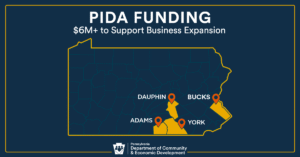Burundi Seeks US Investment to Unlock Rich Natural Resources
The Facts -
- Burundi ranks near the bottom in the UN Human Development Index.
- Burundi's government aims to boost infrastructure and resource monetization.
- Burundi's human rights record faces scrutiny; development potential remains.
Burundi's Call for U.S. Investment Amidst Challenges and Opportunities
While Rwanda garners international praise for its economic advancements, its neighbor Burundi finds itself at a crossroads, striving to transform its economic landscape and improve its global standing. Despite stark differences in development trajectories, Burundi's ambassador to the U.S., Jean Bosco Barege, envisions a future where the nation leverages its abundant natural resources to overcome persistent challenges.
Historically linked under Belgian colonial rule, Rwanda and Burundi have since diverged significantly in their development paths. Rwanda has made notable strides with annual GDP growth rates between 6-8%, while Burundi struggles to elevate its human development index, ranking seventh from the bottom globally according to the 2025 United Nations Human Development Index.
Life expectancy and per-capita income further reflect this disparity, with Burundi positioned last in global rankings with an average income of $154, starkly contrasted by Rwanda's $1,000. However, Ambassador Barege maintains a hopeful vision, asserting, "We are rich in natural resources, and Burundi is now trying to unlock this potential so that we can monetize what we already have naturally."
Efforts to bolster Burundi's economic prospects include ambitious infrastructure initiatives and a focus on critical minerals. The government is pursuing projects to harness the country's agricultural potential with exports like coffee and tea, alongside minerals such as nickel and lithium. Meanwhile, a new railway project aims to enhance regional connectivity, linking Burundi with Tanzania and eventually the Democratic Republic of Congo (DRC).
However, Burundi's path is not without hurdles. The country's human rights record raises concerns, as reflected in the 2024 Human Rights Report. The report highlights issues such as arbitrary killings and restrictions on freedom of expression, contributing to international scrutiny.
Despite these challenges, economic collaboration remains a priority, as demonstrated by Burundi's involvement in regional initiatives like the Ruzizi III hydropower project, which aims to generate 206 MW of power for Burundi, Rwanda, and the DRC. This initiative, along with peace agreements in the region, underscores the potential for growth through cooperative efforts.
As Burundi seeks to redefine its future, the quest for investments, particularly from the U.S., is seen as a crucial step in realizing its vision of becoming an emerging country by 2040. The shared history and intertwined destinies of Rwanda and Burundi suggest that regional collaboration may pave the way for mutual progress and stability.
---
Read More USA Works News


